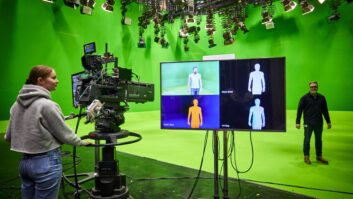Virtual production, remote working, and machine learning are among the key technologies expected to impact the UK’s production sector in the coming years, according to the ScreenSkills Assessment 2021 report.
The research, undertaken during the pandemic, provides a snapshot of skills issues affecting the UK screen industries and possible solutions.
It found that remote-working tools and technologies have become prevalent but the UK needs strong telecoms infrastructure and connectivity to make this an enduring change. Almost three quarters (72 per cent) of the survey’s respondents said they expect remote working to have a significant impact on the screen industries over the next five years.
However, one respondent warned the wider technological infrastructure in the UK needed to improve for remote working to be effective for the long-term: “It will take more than the actions of any single screen company. There’s a question of infrastructure and connectivity and how much home internet connections can be relied on – it can sometimes simply be easier to go and work from a studio, office, or an authorised and equipped hub.”
8K camera technology, cloud-based workflows, and improved networks and streaming capacity dominated the list of significant technologies that survey respondents felt would affect the future. VR, AR and machine learning (AI) also featured.
Asked about virtual production, 39 per cent of employers and 40 per cent of workforce in the sample cited its increase as a likely change.
Almost half of the employer respondents (46 per cent) said they thought that by 2026 the sector will be deploying more environmentally sustainable practices.
Seetha Kumar, ScreenSkills CEO, said: “This research sheds valuable insight into the lessons learned from this most difficult of years. It suggests new technologies and imaginative work practices adopted at this time might contribute to a better working environment for the future as well as keeping the screen industries vibrant. We will continue to use the evidence of our research with industry to inform and shape investment in skills and training to future-proof the sector.”
The full report can be found here.







